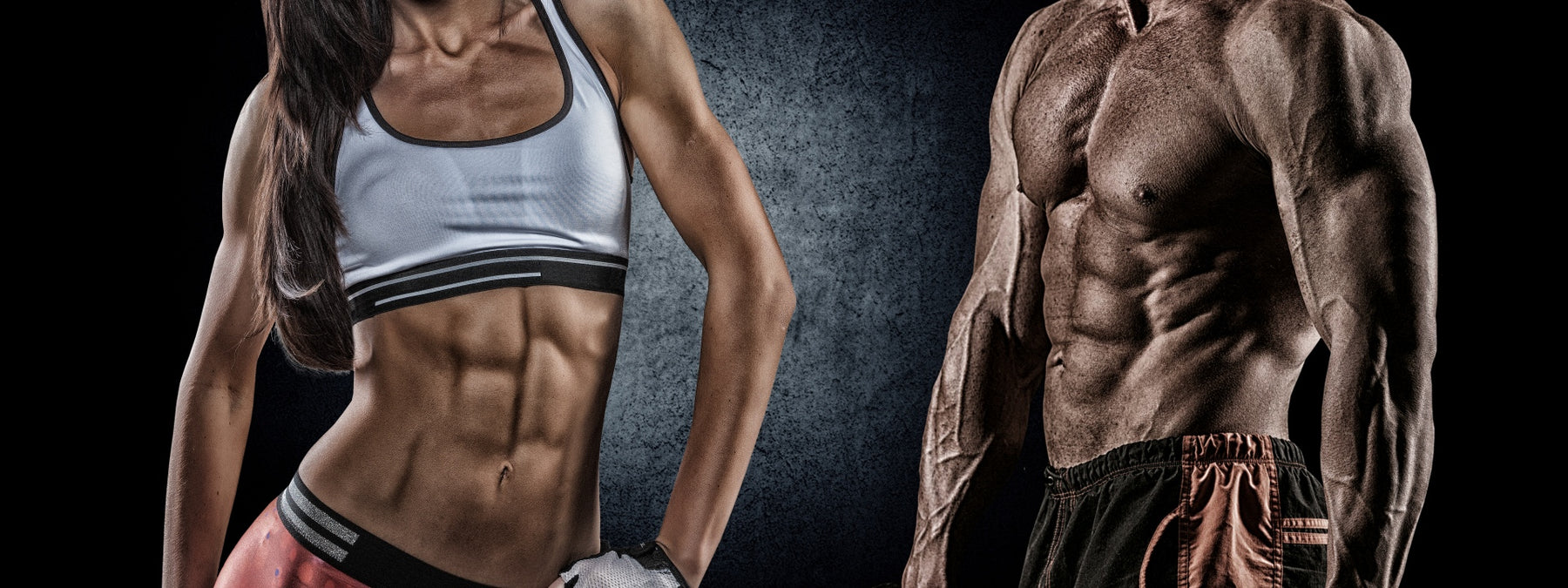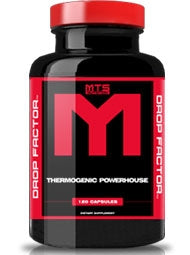
How to Avoid Loss of Muscle Mass While Dieting
Luckily, the majority of the time these feelings are just that: feelings. They aren't real. They aren't actually happening (at least not to the massive degree you think they are). They're figments of your imagination.
But, every now and again, these feelings aren't just feelings. They are real. They are happening.
And they're a product of you becoming the one thing most dieters fear... skinny fat.
What Does "Skinny Fat" Mean?

Drop Factor is the fat burner you've been waiting for. Order now.
Being skinny fat means you're at a low body fat percentage, but you don't look that way - you still look fat - because you don't have enough muscle to fill out your physique. Sounds pretty awful, right?
That's because it is awful, for three reasons:
- Less muscle equates to a slower metabolism, which means less ability to lose fat - and more ability to gain fat - in the long run.
- Less muscle equates to less strength (in most cases).
- You're already at a low body fat percentage - even if you don't look like it - which means you have nowhere else to go. In essence, you're stuck.
How Does Someone Become Skinny Fat?
In my experience, people become skinny fat by either- Starting a diet before they've put on an appreciable amount of muscle mass, or
- Losing a lot of the muscle mass they had while dieting.
The second one, however, is a bit harder to avoid because there are a lot of factors at play when attempting to maintain muscle while dieting. And a lack of attention to any one factor could result in the development of a less than stellar physique.
However, it can certainly be done.
There are strategies you can implement to make sure you don't lose muscle - or as much of it - while dieting (and avoid becoming skinny fat). And four of those strategies are as follows:

How to Avoid Loss of Muscle Mass While Losing Fat
1. Train Like You Did BEFORE You Started Dieting
For some reason, people like to completely alter their training program the moment they begin a fat loss phase. If they were training with heavy weights, they start training with lighter weights. If they were performing compound exercises, they start performing isolation exercises.If they were taking a bunch of rest in between sets, they start taking almost no rest in between sets (circuit training seems like a good idea!).
The problem with this is although some alterations do need to be made to the program when eating in a caloric deficit (you can't handle as much volume). The program that built you the muscle you have is the same program - or the same style of training - that's going to help you maintain it.
Instead of making drastic changes to your routine, the better option would be to decrease volume a bit while continuing to train like you were before.
Not only will you maintain more muscle - because you're maintaining a similar training stimulus - but you'll also maintain a lot of your strength (if not build some).
2. Don't Drastically Reduce Calories
A caloric deficit (burning more energy (food) than you're taking in on a daily basis) is needed to lose body fat.
Period.
But, creating a massive deficit (i.e. going from 3000 calories per day to 1500)? Not a good idea because your body's a survival machine that cares about one thing: your survival.
Muscle is metabolically active tissue (i.e. it takes a lot of energy to maintain). Fat is not (it takes almost no energy to maintain). So when calories are extremely low - and there's not a lot of energy coming in to support your daily activity level, let alone your current body size - muscle is going to get cut.
Instead of creating a large deficit, the better option would be to create a small one (think 200-500 calories below maintenance), and then make even smaller adjustments as you go along.
It may take longer to reach your ideal physique. But, you'll have a much easier time adhering to your diet. And you'll maintain a lot more muscle mass in the process.
3. Eat a Sufficient Amount of Protein
Protein is the building block of muscle tissue. Remove the building blocks of your muscles and guess what? No more muscles (or at least, not as much of them).What constitutes a "sufficient amount" of protein? Around 1g of protein per pound of body weight. A little more or less than that is fine.
But, although protein is extremely important, eating too much of it will take away from the other macronutrients (carbs and fats are important too).
4. Don't Overdo it on Cardio
Lastly, if you're not an endurance athlete, don't go crazy on cardio. Cardio is needed for most people to reach extremely low levels of body fat (because it allows them to keep their food intake higher while still stimulating fat loss) but doing too much of it will:- Hinder your performance in the weight room (which will negatively impact strength).
- Create a massive deficit (if you jump from doing no cardio at all to a ton of it).
- Make it difficult to maintain long-term adherence (doing cardio seven days per week is not something most people want to maintain).
There's no universal answer for what that "bare minimum" is. So, my recommendation would be to start a cut by decreasing calories (i.e. your food intake).
Then, once you get to a point where you don't want to eat less food, start incorporating cardio.
Wrapping Up
With all of the above being said, can you maintain ALL of your muscle mass while dieting? No, probably not. But, by incorporating these strategies (training like you were before you started dieting, dieting slowly, eating sufficient protein, and limiting cardio) you can maintain most of it.Being skinny-fat sucks, and is one of the worst things that could happen from a fat loss standpoint. So, be smart about how you diet.
The last thing you want is to wind up at the end of one with nothing to show for it.

Leave a comment